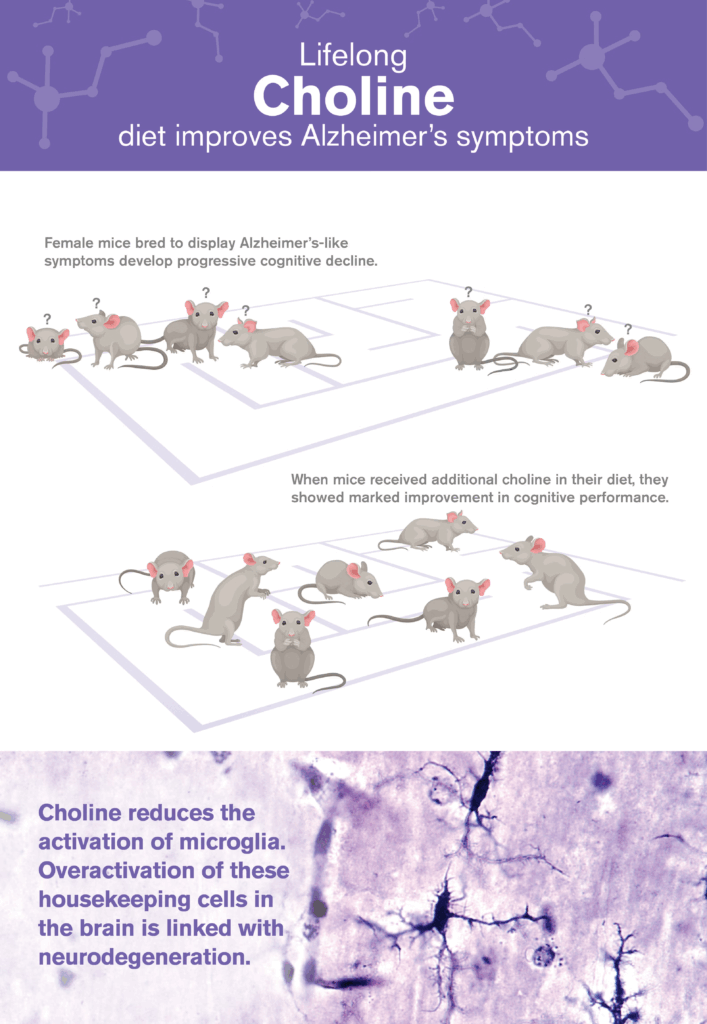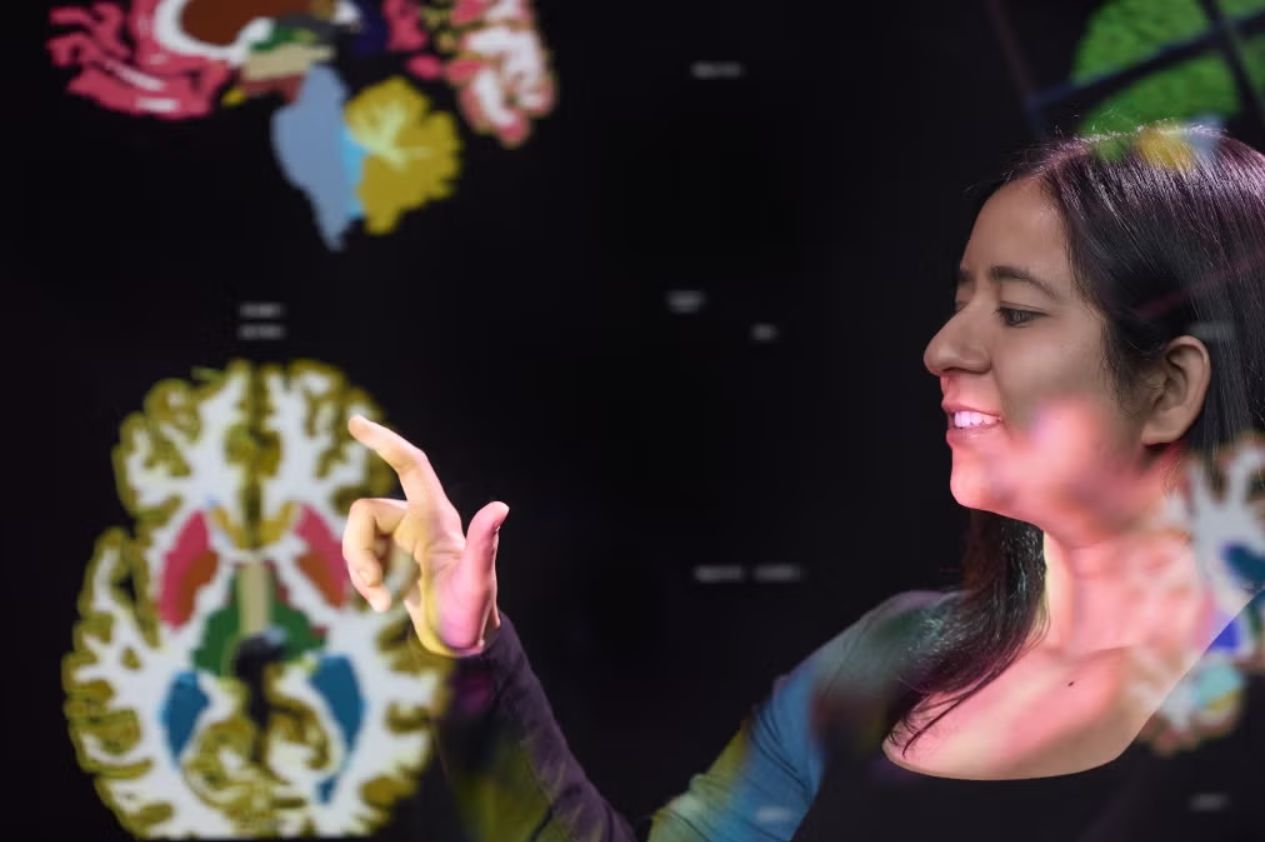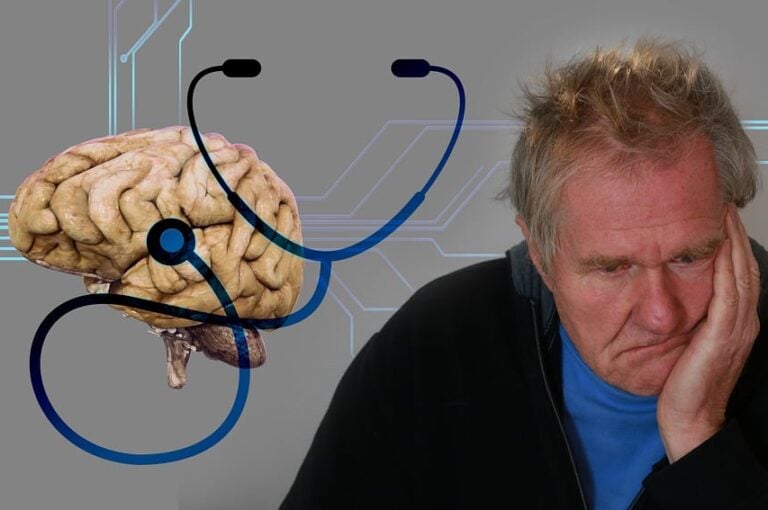What Is Choline and Why Does It Matter?
Choline is an essential nutrient found in foods like:
- Eggs,
- Fish,
- Meat,
- Broccoli, and
- Beans.
While not as famous as vitamin D or omega-3s, it’s just as crucial—especially when it comes to brain health.
Recent studies by Arizona State University’s Biodesign Institute suggest that choline may play a critical role in preventing cognitive decline. Choline contributes to neurotransmitter production, cell membrane integrity, and regulation of inflammation—all important functions that keep the brain ticking.
Low Choline Levels and Alzheimer’s Risk
Evidence is stacking up. Multiple ASU studies have found that individuals with lower levels of choline in their bloodstream may face accelerated progression of Alzheimer’s symptoms. One groundbreaking study demonstrated that mice fed a choline-deficient diet showed signs of neurodegeneration and memory loss.
Even more striking: ASU research showed that supplementing pregnant mice with choline led to offspring with improved memory and learning skills, suggesting that choline’s protective effects may span generations.
How to Boost Choline Intake

Here are some easy ways to increase your dietary choline:
- Eat eggs – one of the richest natural sources
- Add broccoli and beans – plant-based choline options
- Include lean meats or fish – great sources for omnivores
- Consider a supplement – always consult a doctor first
According to experts interviewed on Arizona PBS, proper choline intake might help reduce brain inflammation, protect neurons, and potentially slow Alzheimer’s progression. It’s a promising area of preventative medicine that’s gaining momentum.
A Future Worth Watching

Arizona State University researchers aren’t slowing down. Studies continue to explore choline’s role not just in Alzheimer’s, but in system-wide neurological health. Could a simple dietary tweak rewrite the narrative of aging brains? It’s still early—but hope is growing.












Choline supplements can be quite helpful. I have experimented with several brands and have felt the boost in mental clarity. I met a Functional Medicine Neurologist from Canada who was experimenting with high dose choline supplementation on himself, and he reported significant improvements in memory and focus on the days when he was taking higher doses (I am not recommending high doses or off label use of these products, just sharing his experience). He said he eventually reached a dose that caused tremors (8 capsules, if memory serves), and of course being a neurologist he was very concerned about that, but when he reduced the doses the tremors resolved quickly.